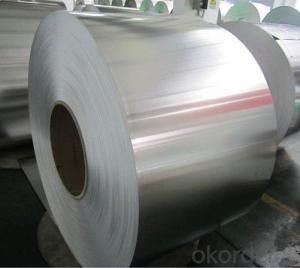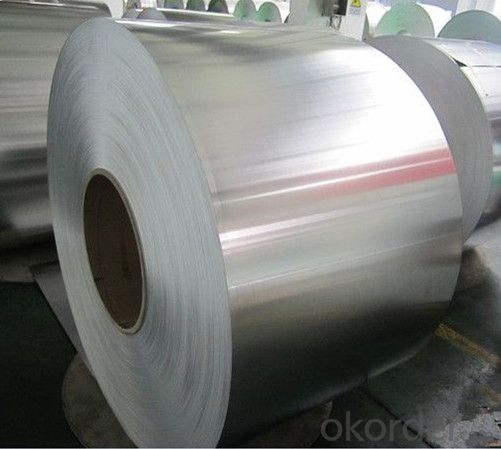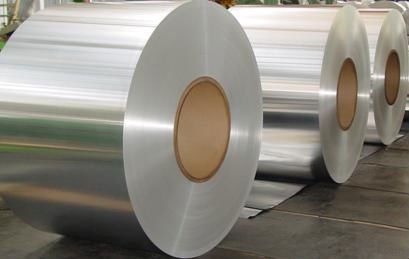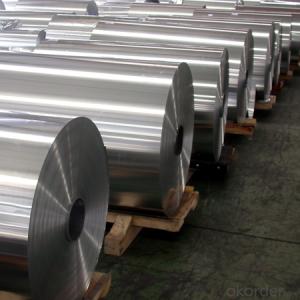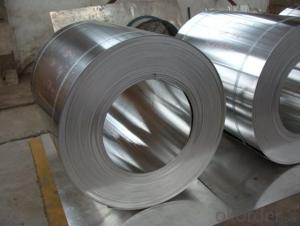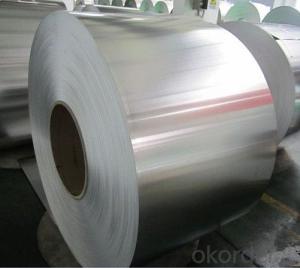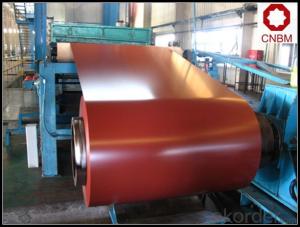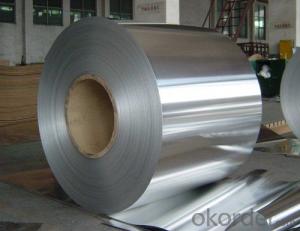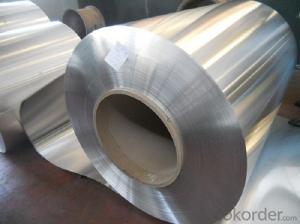Aluminum in Coil Form - 5052 Temper H32 0.8mm to 1mm Thick 1000mm Width Aluminum Coil
- Loading Port:
- Shanghai
- Payment Terms:
- TT OR LC
- Min Order Qty:
- 5 m.t.
- Supply Capability:
- 6000 m.t./month
OKorder Service Pledge
OKorder Financial Service
You Might Also Like
Specification
5052 Temper H32 0.8mm 1mm Thick 1000mm Width Aluminum Coil
1050 1060 1070 1100 1235representative series aluminum plate is also known as pure aluminum, in the series in 1xxx series belongs to all the alumina quantity of a maximum number of series. Purity can achieve 99.00% above
3xxx series aluminum represents 3003 3004,3005, 3 A21 primarily. And can be called in the 3xxx series aluminum antirust aluminum production process more outstanding. The 3xxx series aluminum plate is by manganese as the main component. Content at 1.0-1.5 between. Is a rust-proof function better series. Conventional application in the air conditioning, the refrigerator, such as car in damp environment.
6xxx series represents 6061 mainly contain magnesium and silicon of two elements, so focused on the 4000 series and the advantages of the 5000 series 6061 is a cold treatment aluminum forging products, apply to fight against corrosion, oxidizing demanding applications.
Description
item | 1050 1060 1100 3003 Aluminum coil | |
Standard | GB/T3190-2008,GB/T3880-2006,ASTM B209,JIS H4000-2006,etc | |
Material | 1060,1050,1100 3003,3103,3004,3005,3105 5052, 5454,5754 | |
Size | Thickness | 0.5mm-3.5mm |
Width | 800-1500mm | |
Weight/Roll | About 1.5MT/3MT | |
Quality control | Mill Test Certificate is supplied with shipment, Third Part Inspection is acceptable. | |
Surface | Bright, polished, hair line, brush, checkered, embossed, etc | |
Trade terms | Price term | ,FOB, CNF, CIF, etc |
Payment Term | TT,L/C | |
MOQ | 2MT | |
20 GP Capacity | About 20-25MT | |
Delivery time | 1.The products will delivery immediately after receiving the payment. 2.According to the order quantity, prompt delivery. | |
Export to | Ireland,Singapore,Indonesia,Ukraine,Spain,Canada,USA,Brazil,Thailand,Korea,Iran,India,Egypt,Kuwait, Oman,Viet Nam, South Africa, Dubai, Russia, etc | |
Package | Stick blue film→plastic film→waterproof paper→1~2 tons on a export standard pallet(corner protection) | |
Application | 1)Further making utensil.2)Solar reflective film3)The appearance of the building4)Interior decorating:ceilings,walls,etc.5)Furniture cabinets6)Elevator decoraction7)Signs,nameplate,bags making.8)Decoration inside and outside the car9)Household appliances:refrigerators,microwave ovens,audio equipment,etc.10)The consumer electronics:mobile phones,digital cameras,MP3,etc. | |
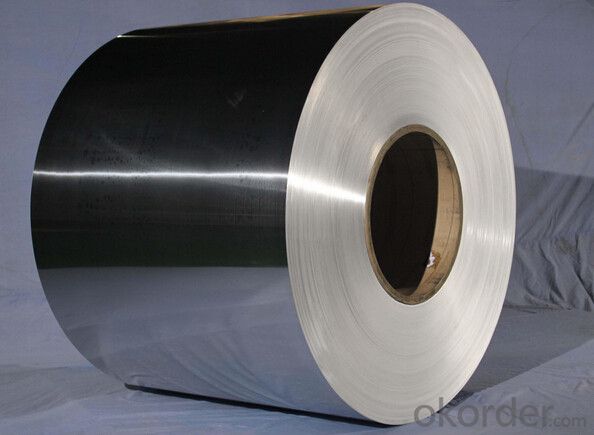
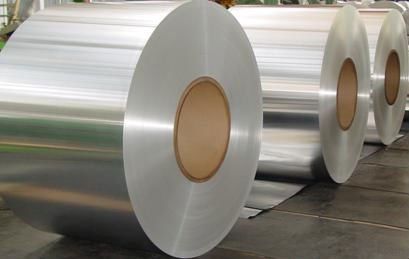
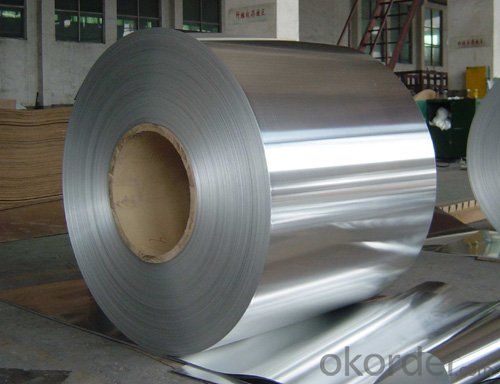
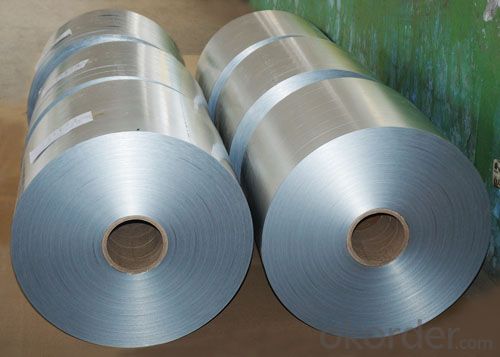
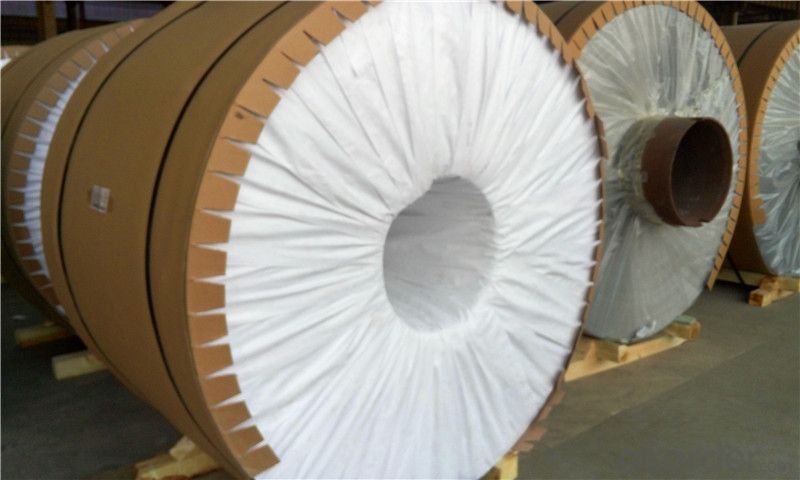
- Q: Can aluminum coils be used in the manufacturing of appliances?
- Yes, aluminum coils can be used in the manufacturing of appliances. Aluminum is a lightweight and durable material that is commonly used in the manufacturing industry due to its excellent thermal conductivity and corrosion resistance properties. These properties make it suitable for various applications, including the production of heating and cooling systems in appliances such as refrigerators, air conditioners, and ovens. Aluminum coils are often used in these appliances to transfer heat efficiently and ensure optimal performance. Additionally, aluminum is a sustainable material as it is highly recyclable, making it an environmentally friendly choice for appliance manufacturers.
- Q: What are the typical delivery options for aluminum coils?
- The typical delivery options for aluminum coils include shipping via truck, rail, or ocean freight. Additionally, local pickup may also be available for customers located near the manufacturing facility or distribution center.
- Q: Can aluminum coils be used in telecommunications infrastructure?
- Telecommunications infrastructure can employ aluminum coils as they possess several advantages. Firstly, aluminum, being a lightweight and durable material, finds extensive use in various industries, including telecommunications. Its cost-effectiveness, when compared to metals like copper, makes it a preferred choice for many companies in this sector. Moreover, the lighter weight of aluminum coils facilitates easier handling and installation, resulting in reduced labor and transportation costs. Additionally, aluminum's excellent electrical conductivity makes it suitable for transmitting data signals in telecommunications networks. By effectively carrying electrical current, aluminum coils ensure efficient data transmission without compromising quality. Consequently, reliable and high-speed communication over long distances becomes possible. Another advantage of incorporating aluminum coils in telecommunications infrastructure lies in their resistance to corrosion. When exposed to air, aluminum naturally forms a protective oxide layer, preventing rusting and corrosion. This resistance enhances the longevity and durability of the infrastructure, thereby reducing maintenance and replacement expenses over time. Nevertheless, it is crucial to acknowledge that aluminum possesses lower tensile strength than copper. Therefore, the infrastructure's structural integrity must be adequately considered and engineered when employing aluminum coils. Additionally, specific connectors and compatible hardware may be necessary. In conclusion, the use of aluminum coils in telecommunications infrastructure is highly effective due to their cost-effectiveness, lightweight nature, electrical conductivity, and corrosion resistance. Proper planning and design are imperative to ensure the successful implementation of aluminum coils in telecommunications networks.
- Q: How are aluminum coils transported and delivered?
- Aluminum coils are typically transported and delivered through a combination of road, rail, and sea transportation methods. The specific mode of transportation will depend on various factors, including the distance between the manufacturing facility and the destination, the quantity of coils being transported, and the urgency of the delivery. For shorter distances, aluminum coils are commonly transported by road. Specialized trucks equipped with flatbed trailers or coil carriers are used to ensure safe and secure transportation. These trucks are designed with features like adjustable cradles or coil pads that prevent the coils from rolling or shifting during transit. When it comes to longer distances, rail transportation is often employed. Coils are loaded onto railcars, which can accommodate a significant number of coils depending on their size and weight. Rail transport offers the advantage of being more cost-effective and environmentally friendly compared to road transportation for long-haul journeys. In cases where aluminum coils need to be transported overseas or to another continent, sea transportation is the preferred option. Coils are carefully packed into shipping containers, ensuring they are adequately protected from potential damage during transit. These containers are then loaded onto cargo ships, which offer the necessary capacity and stability to transport large quantities of coils across long distances. Regardless of the mode of transportation, it is crucial to handle aluminum coils with care to prevent any damage or deformation. Special attention is given to protecting the coils from excessive vibration, impact, or exposure to adverse weather conditions. To ensure proper delivery, logistics companies often employ tracking systems that allow them to monitor the location and condition of the coils throughout the transportation process. Overall, the transportation and delivery of aluminum coils involve a well-coordinated logistics network to ensure the coils reach their destination in a timely and efficient manner while minimizing the risk of damage.
- Q: This question asks about the impact of aluminum coils on cooking equipment, including their role in heat distribution and potential benefits or drawbacks.
- <p>Aluminum coils in cooking equipment play a significant role in heat distribution and retention. They are known for their excellent thermal conductivity, which allows for even heat distribution across the cooking surface, reducing hot spots and ensuring consistent cooking results. Aluminum's lightweight and malleability also make it easy to shape into various forms, fitting different types of cookware. However, aluminum can react with acidic foods, potentially altering the taste or releasing small amounts of aluminum into the food, which some studies suggest could have health implications. Additionally, aluminum cookware requires careful handling to avoid scratches that can compromise its performance and appearance.</p>
- Q: What are the different sizes and dimensions of aluminum coils available?
- The specific industry and application determine the sizes and dimensions of aluminum coils, which can vary. Various widths, thicknesses, and lengths are generally available to cater to different needs. In the construction sector, aluminum coils are typically found in widths ranging from 24 to 60 inches. The thicknesses can vary from 0.019 to 0.040 inches. While the lengths of the coils can differ, standard lengths are usually around 100 feet or more. For industrial and manufacturing purposes, the sizes and dimensions of aluminum coils can be even more diverse. Coils wider than 60 inches are available for large-scale applications. The thicknesses can range from 0.006 inches for slim, lightweight coils to 0.250 inches for heavy-duty applications. Moreover, the dimensions of aluminum coils can be customized to meet specific requirements. Some manufacturers offer coil slitting services to cut coils into narrower widths, while others can provide custom lengths or thicknesses based on customer specifications. It is worth noting that the availability of different sizes and dimensions may vary among suppliers. Therefore, it is advisable to consult a reputable aluminum coil supplier or manufacturer to determine the specific sizes and dimensions they offer.
- Q: If the aluminum coil is 220 kg, 0.3 thick and 500 wide, how much is the coil diameter?
- With the outer diameter and inner diameter, you can know the volume. With the density and volume, we can calculate the weight. And with weight, we can know the length.
- Q: Can aluminum coils be used for heat sinks?
- Yes, aluminum coils can be used for heat sinks.
- Q: How do aluminum coils perform in high humidity environments?
- Aluminum coils perform well in high humidity environments due to their inherent resistance to corrosion. Unlike many other metals, such as iron or steel, aluminum does not rust when exposed to moisture. This makes it a suitable choice for applications where high humidity is a concern, such as air conditioning systems or refrigeration units. The corrosion resistance of aluminum is primarily due to the formation of a thin layer of aluminum oxide on its surface when exposed to oxygen. This oxide layer acts as a protective barrier against further oxidation, preventing the metal from deteriorating even in humid conditions. Moreover, the lightweight nature of aluminum allows for better heat transfer and energy efficiency in cooling systems. This property makes aluminum coils a popular choice as heat exchangers, as they can effectively transfer heat from the air or fluid passing through them. Additionally, aluminum coils are typically coated with a protective layer or treated with a corrosion-resistant coating to further enhance their performance in high humidity environments. These coatings provide an extra layer of protection against moisture and other corrosive elements, ensuring the longevity and reliability of the coils. In summary, aluminum coils are highly suitable for high humidity environments due to their resistance to corrosion and their efficient heat transfer properties. The combination of these factors makes them a reliable choice for various applications where moisture is a concern.
- Q: How are aluminum coils inspected for surface defects?
- Aluminum coils are inspected for surface defects using various techniques, including visual inspection, automated systems, and non-destructive testing methods. Visual inspection involves trained personnel examining the coils for any visible defects such as scratches, dents, or discoloration. Automated systems, equipped with advanced cameras, are used to detect surface defects by capturing high-resolution images and analyzing them for any abnormalities. Additionally, non-destructive testing methods like eddy current testing or ultrasonic testing are employed to identify hidden defects or irregularities that cannot be detected by visual inspection alone. These methods help ensure that aluminum coils meet the required quality standards before being used in various industries.
Send your message to us
Aluminum in Coil Form - 5052 Temper H32 0.8mm to 1mm Thick 1000mm Width Aluminum Coil
- Loading Port:
- Shanghai
- Payment Terms:
- TT OR LC
- Min Order Qty:
- 5 m.t.
- Supply Capability:
- 6000 m.t./month
OKorder Service Pledge
OKorder Financial Service
Similar products
Hot products
Hot Searches
Related keywords
